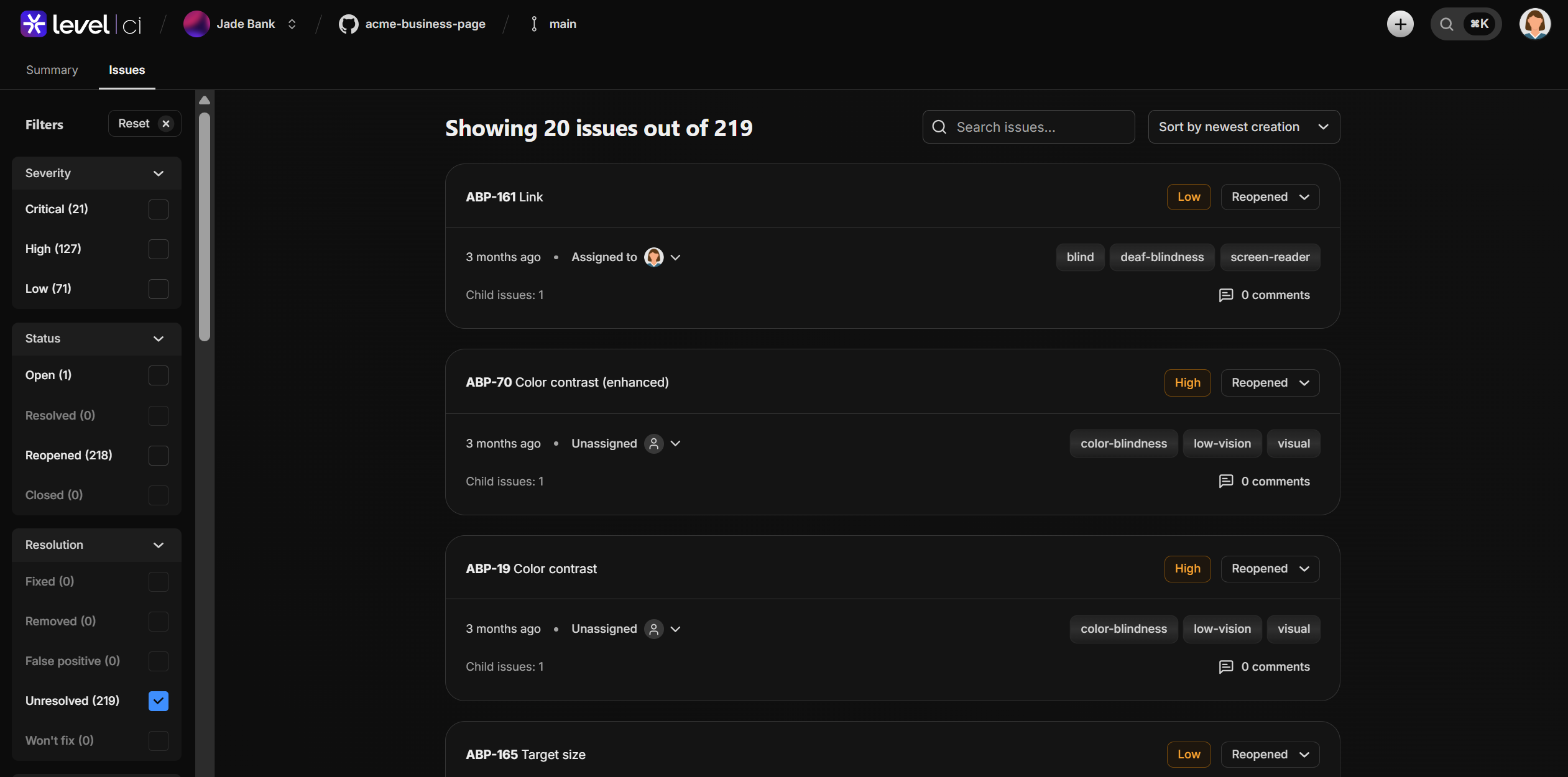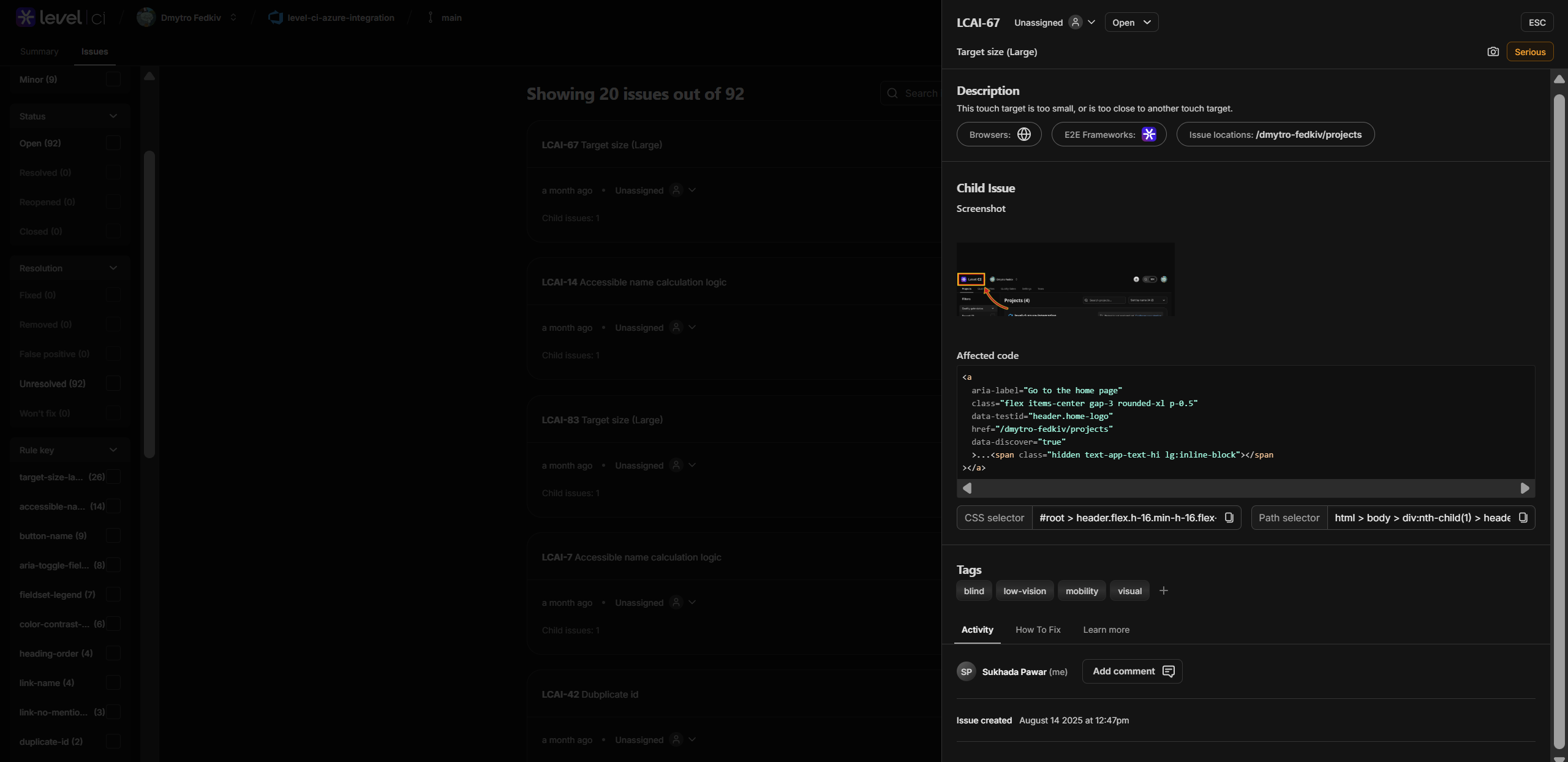Reviewing accessibility issues

Accessibility issues related to the main branch scan or feature branch scan will result in issues reflected in the issue list page
Issue details:

- Description – A summary of the issue, explaining what accessibility problem was detected.
- Child Issues – Related or duplicate issues grouped under the main issue.
- Affected Code – The exact snippet of code where the problem occurs.
- CSS Selector – The CSS selector that identifies the affected element on the page.
- Path Selector – The DOM path to the element, showing its position in the page structure.
- Tags – Labels that classify the issue (e.g., WCAG criteria, severity, priority).
- Activity – A history of changes, comments, and updates made to the issue.
- How to Fix – Step-by-step guidance or code suggestions to resolve the issue.
- Learn More – Links to documentation, WCAG guidelines, or best practices for deeper understanding.
Issue Statuses
- OPEN – A new issue has been found.
- REOPENED – An issue that was previously resolved has come back.
- RESOLVED – A user has marked the issue with a resolution (like Fixed or Won’t Fix).
- CLOSED – The issue is no longer detected in the latest scan.
Issue Resolutions
- UNRESOLVED – Default state (nothing has been decided yet).
- WONTFIX – The issue is valid but will not be fixed for now.
- FIXED – The issue has been fixed in code.
What Users Can Do
When status = OPEN or REOPENED and resolution = UNRESOLVED
Users can:
- Change the assignee
- Change the status
- Add or remove tags
- Add, edit, or delete comments
When status = RESOLVED and resolution = WONTFIX
Users can:
- Change the assignee
- Change the status
- Add or remove tags
- Add, edit, or delete comments
When status = CLOSED and resolution = FIXED Users can:
- Add, edit, or delete comments
Users cannot:
- Change the assignee
- Change the status
- Add or remove tags
Rules for Transitions
- Some transitions are not allowed. For example:
- An issue that is CLOSED + FIXED cannot go back to OPEN + UNRESOLVED.
Last updated on